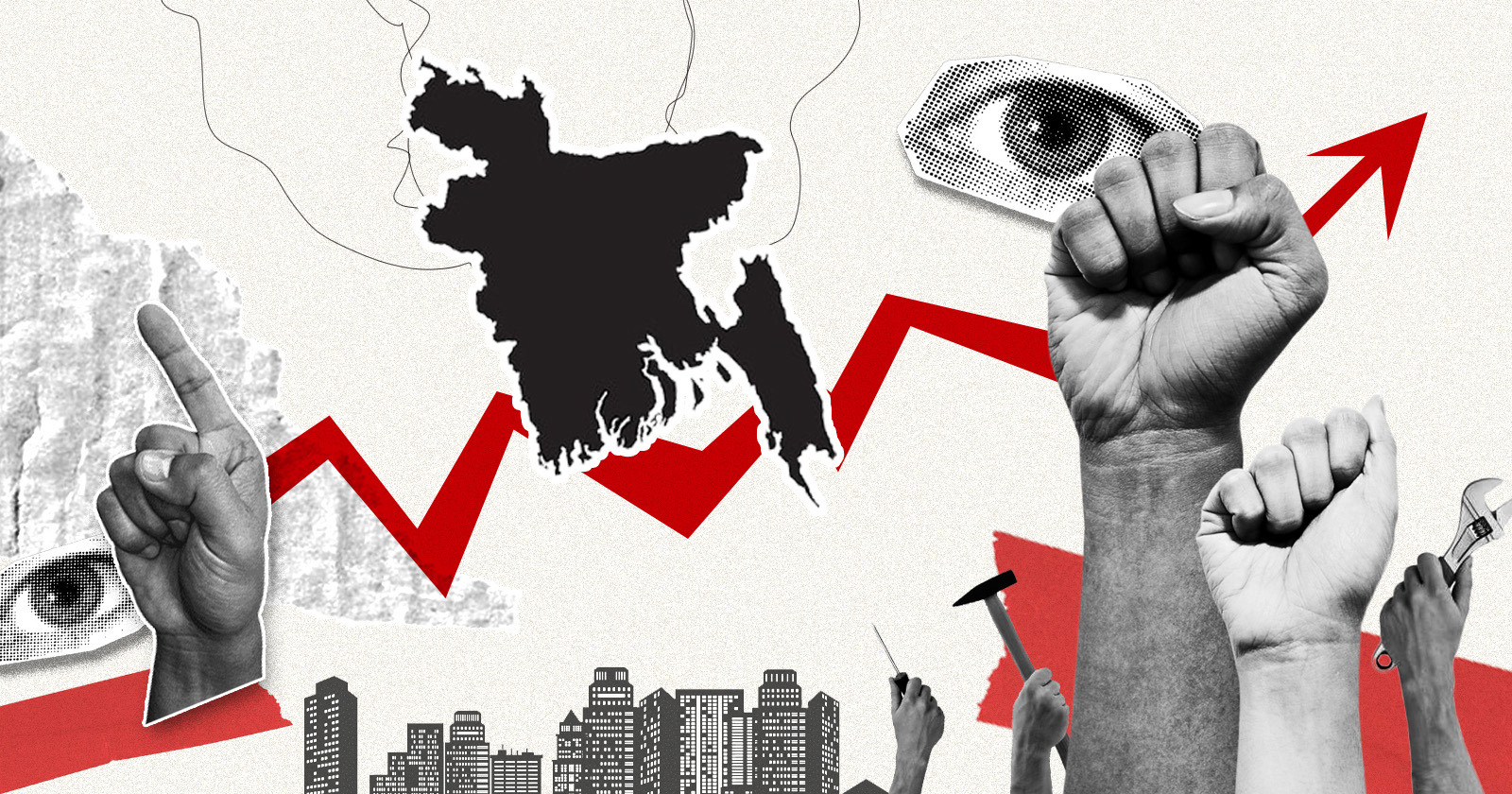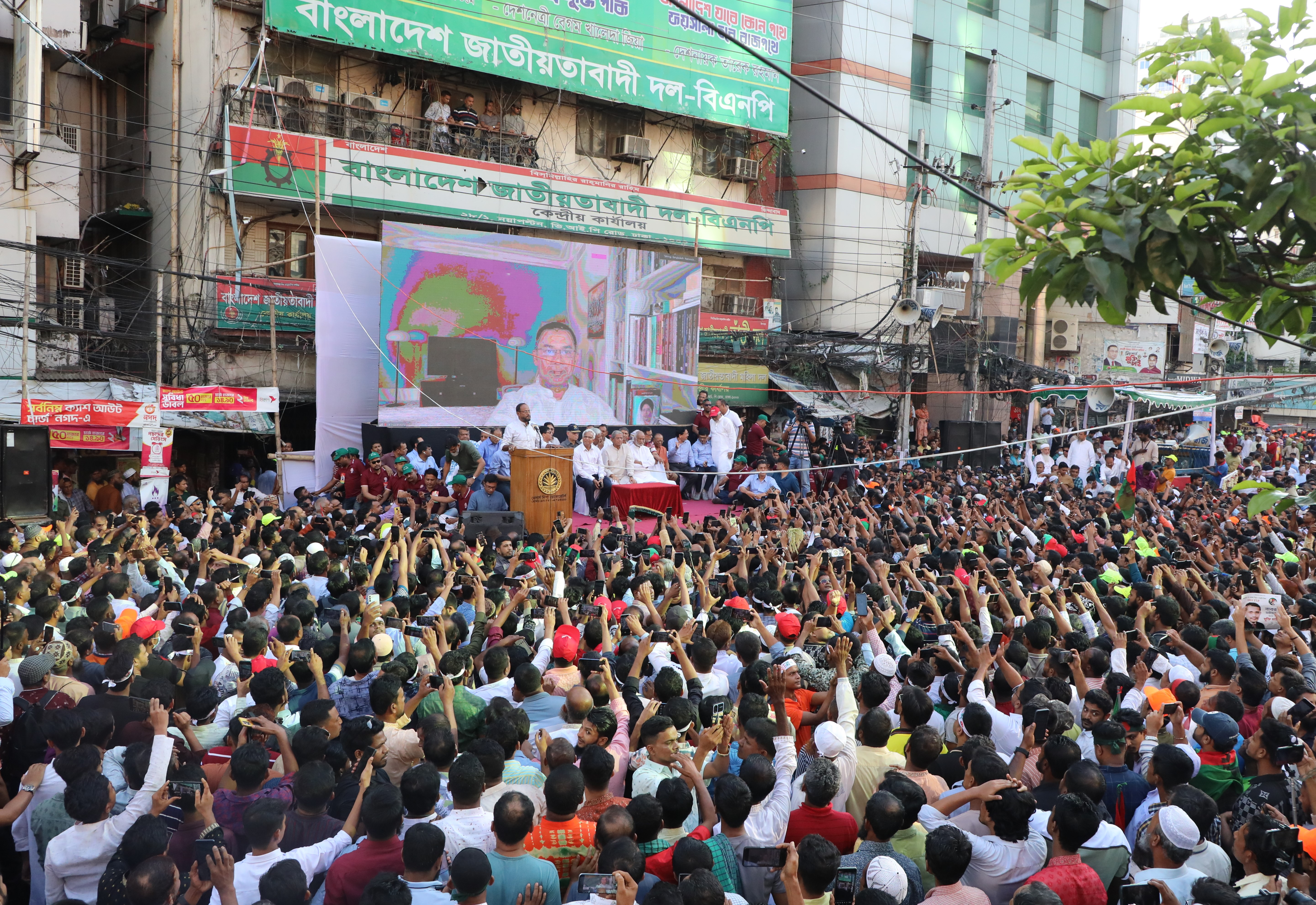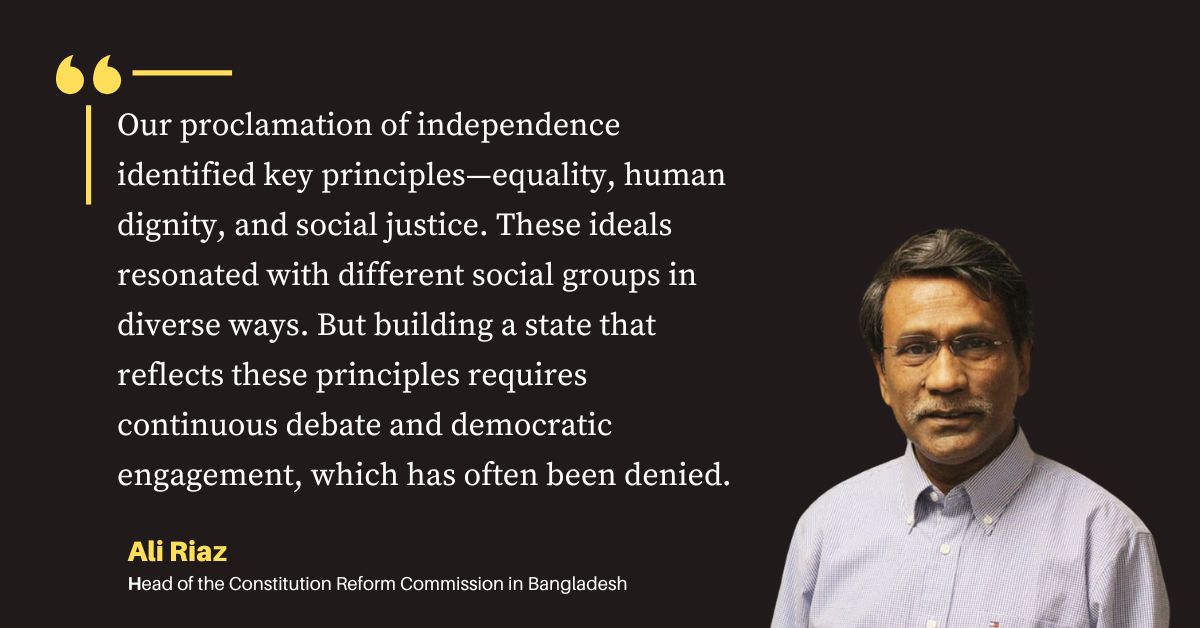Democracy can’t endure without fair delivery of justice

In Bangladesh today, arbitrary arrests, denial of bail, and politically driven prosecutions have eroded public trust in the justice system. In his recent column titled "Can justice be dispensed in an unjust manner?", The Daily Star Editor Mahfuz Anam also points out a dilemma embedded in the country's judicial system as the judiciary seems to follow the "letter" of the law while neglecting its "spirit" of fairness. Justice loses meaning when citizens see arbitrary arrests, routine denial of bail, and politically motivated cases clogging the courts. The question confronting us is stark: can the system regain integrity, or will cynicism over legal recourse become permanent?
Anam highlights the ongoing abuses clearly. Detentions are stretched beyond constitutional intent, journalists and opposition voices face false cases, and charge sheets are either delayed or manipulated to extend harassment. What is missing is a roadmap that transforms these critiques into reforms. Without such direction, moral outrage risks dissipating without effect. The challenge is therefore twofold: to expose injustice and to design remedies capable of restoring confidence in the courts.
First, it is vital to recognise that Bangladesh is not alone in facing this dilemma between "the letter of the law" and "the spirit of the law." Many transitional democracies have struggled with the same tension between law and politics. India, for instance, witnessed widespread abuse of police power during the 1975-77 Emergency, when arrests without trial became the norm. It was only through Supreme Court interventions such as DK Basu vs. State of West Bengal (1997) that safeguards such as mandatory arrest records, access to legal counsel, and compensation for wrongful detention began to take shape. That jurisprudence demonstrated how persistent civil society pressure, coupled with principled judges, can translate temporary outrage into enduring institutional guardrails.
Pakistan, too, has a long history of preventive detention laws being used against political opponents. Yet, periods of judicial activism, particularly under Chief Justice Iftikhar Chaudhry in the 2000s, demonstrated that assertive courts can push back against executive overreach, even if such gains later prove fragile. The lesson is sobering: progress is reversible if vigilance fades, and independence is never self-sustaining—it must be continually defended.
South Africa offers another instructive model: in the aftermath of apartheid, the establishment of a Judicial Service Commission created a transparent process for appointments and oversight, helping to insulate judges from partisan interference. In countries scared by authoritarianism, institutional reform was often the difference between relapse and renewal. These comparative experiences show that abusive practices can be restrained if institutions are restructured and accountability is enforced.
Second, Bangladesh must urgently strengthen judicial independence not only in constitutional rhetoric but in practice. Independence means more than judges not taking direct orders from the executive. It requires secure tenure, adequate resources, freedom from intimidation, and a culture of professional pride. In Kenya, for example, the creation of a Judicial Service Commission after years of abuse provided a buffer against political pressure and allowed for greater transparency in judicial administration. Without such institutional mechanisms, judges risk being reduced to rubber stamps for whichever political coalition holds power.
Third, the rights of the accused need stronger protection. The principle of equality before the law cannot coexist with systemic abuse of bail, indefinite detention without charge, or selective prosecution of political rivals. Ensuring universal access to defence lawyers, mandating disclosure of evidence before denial of bail, and enforcing strict timelines for filing charge sheets would be important first steps. These are not radical measures; they are minimum standards in any system that claims to uphold justice.
Fourth, reforms must extend beyond the judiciary to the process of case filing itself. Too often, frivolous or vindictive cases are registered with little scrutiny, overwhelming the courts and intimidating citizens. Independent oversight of law enforcement, combined with penalties for police officers or prosecutors who pursue false cases, is essential. Kenya's Independent Policing Oversight Authority provides a useful comparative example, demonstrating how external scrutiny can deter misconduct and rebuild public trust. Bangladesh would benefit from a similar body with real investigatory powers.
Fifth, transparency is indispensable. Without public scrutiny, reforms remain cosmetic. Courts should regularly publish data on the number of arrests, charge-sheet completions, bail grants and denials, and average trial lengths. Such information, if made accessible to the press and civil society, would allow citizens to measure whether justice is being applied evenly or manipulated for partisan ends. In South Africa, public reporting by the Constitutional Court helped cultivate trust in a fragile democracy. Bangladesh could pursue a comparable path.
In addition, Bangladesh should pilot a fast-track habeas corpus list with 72-hour deadlines for unlawful detention claims, cap cumulative police remand, and create a national public-defender service so that indigent defendants are not abandoned to procedural traps. Cost-shifting and statutory damages for malicious prosecution would deter frivolous cases, while searchable databases of bail and sentencing decisions would make deviations visible to the public and appellate courts. None of these reforms is exotic; they are tested and implementable.
Finally, legal education and professional culture must evolve. Law schools, bar associations, and training institutes should place stronger emphasis not just on procedural technicalities but on constitutionalism, human rights, and the broader social role of justice. A judiciary that views itself as the guardian of rights rather than as a bureaucratic cog will be better positioned to withstand political manipulation.
Justice dispensed in an unjust manner is no justice at all. It may satisfy the immediate desires of those in power, but it leaves deep scars on the social contract. Citizens lose faith in institutions, grievances multiply, and cycles of impunity harden. Mahfuz Anam's column, thus, is a timely warning that Bangladesh stands at this dangerous threshold. The path forward requires not only outrage but reform: structural, cultural, and legal. Other nations have shown that it is possible to restrain executive excess and rebuild trust in the courts. For Bangladesh, the imperative is clear: without a justice system that is both fair and seen to be fair, democracy itself cannot endure.
Dr Abdullah A Dewan is professor emeritus of economics at Eastern Michigan University in the US, and a former physicist and nuclear engineer of Bangladesh Atomic Energy Commission. He can be reached at aadeone@gmail.com.
Views expressed in this article are the authors' own.
Follow The Daily Star Opinion on Facebook for the latest opinions, commentaries and analyses by experts and professionals. To contribute your article or letter to The Daily Star Opinion, see our guidelines for submission.




 For all latest news, follow The Daily Star's Google News channel.
For all latest news, follow The Daily Star's Google News channel. 


Comments